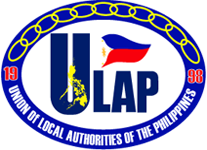Orientation on the Capacity Development Agenda Formulation for the APALGU
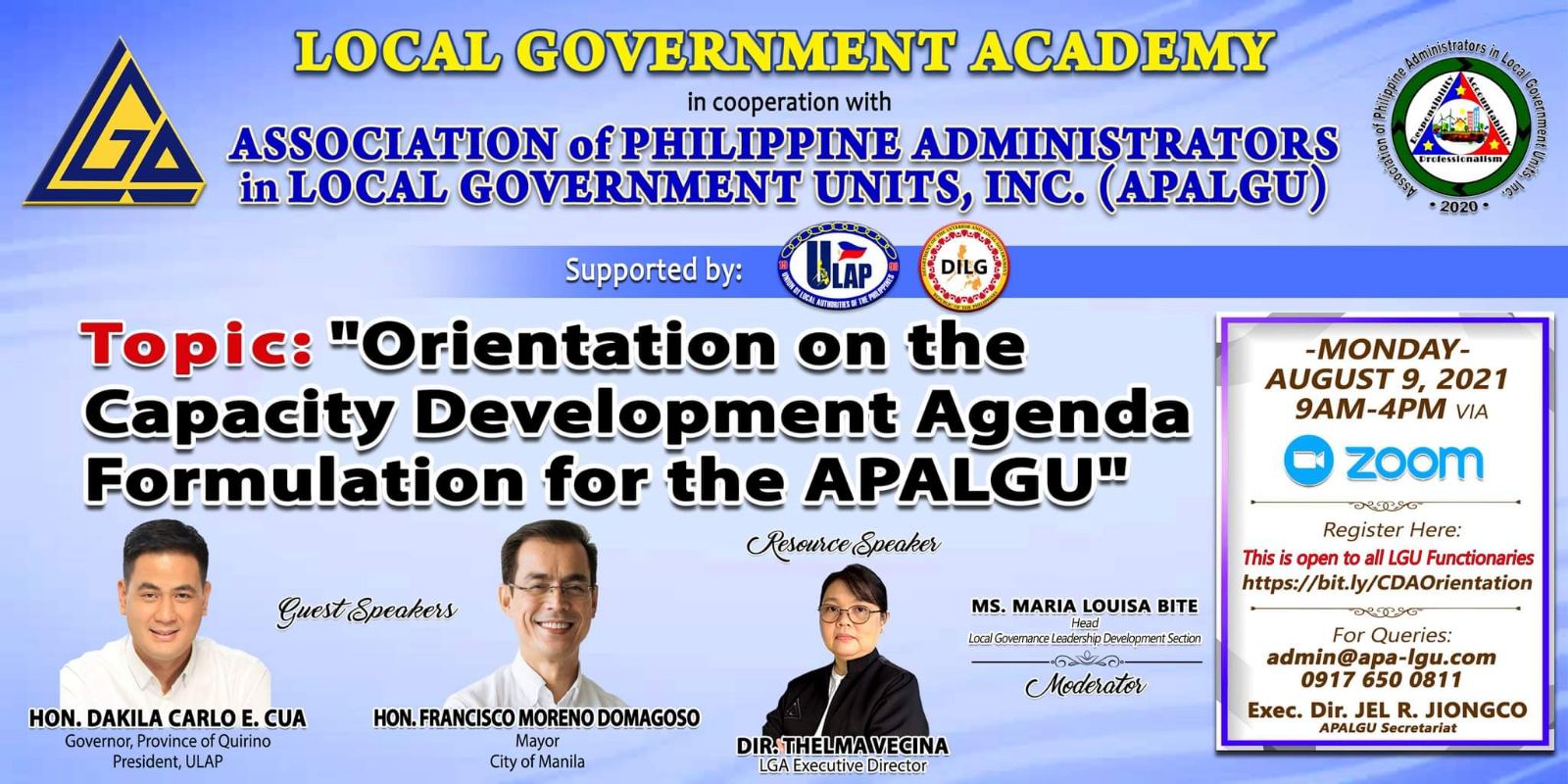

The webinar’s topic is, “Orientation on the Capacity Development Agenda Formulation for the APALGU".
Invited Guest Speakers are: Gov. Dakila Carlo E. Cua of the Province of Quirino and President of the Union of Local Authorities of the Philippines; and Mayor Francisco Moreno Domagoso of the City of Manila.
This capacity-enrichment activity spearheaded by APALGU is supported by the Union of Local Authorities of the Philippines and the Department of the Interior and Local Government.
Please register via: https://bit.ly/CDAOrientation. This is Open to all LGU Functionaries.
For queries, please contact: This email address is being protected from spambots. You need JavaScript enabled to view it. or at 09176500811 and look for Exec. Dir. Jel R. Jiongco, APALGU Secretariat.
Earth Day 2021 Webcast - PINASiglang Mundo Manifesto of Commitment from Elected Government Officials


ULAP #FORWARD Strategy Dialogue Series: Part 2 - Dialogue with the DTI on “Revving up the Local Economic Engines and Small Entrepreneurs"


ULAP #FORWARD Strategy Dialogue Series: Part 1 - Dialogue with the DOF


ULAP, in collaboration with the Department of the Interior and Local Government (DILG), is conducting a series of online dialogues between local government units (LGUs) and the country’s economic managers on how we can rebuild the local economy in the short and long-term and what interventions from the national level have been made in terms of related stimulus measures.
Entitled as the ULAP #FORWARD Strategy Dialogue Series on “REKINDLING LOCAL ECONOMIC GROWTH”, this is yet another initiative of ULAP to support LGUs in their efforts to bring the local economy back to its feet while sustaining the fight against COVID-19.
The first part of the series will be the DIALOGUE WITH THE DEPARTMENT OF FINANCE (DOF) ON “PUTTING FISCAL ORDER IN PLACE FOR LOCAL ECONOMIC RECOVERY”. Among the topics are the “Bayanihan to Recover as One Act” (Bayanihan II) salient features relative to the interest subsidy for LGUs, loan facilities for recovery plans and dormant local funds utilization, among others.
ULAP Special #beatCOVID19 and #EndTB Webinar
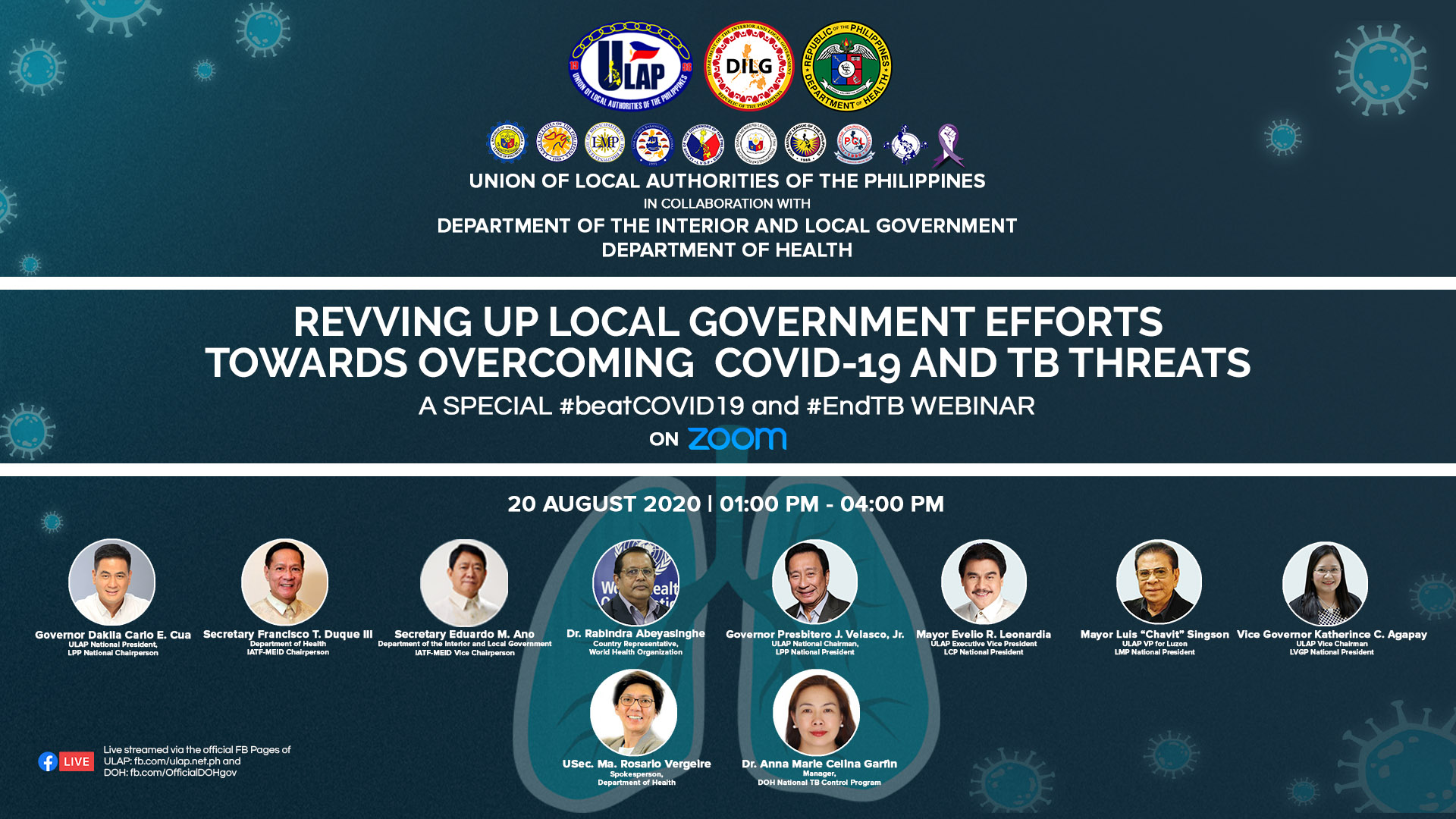
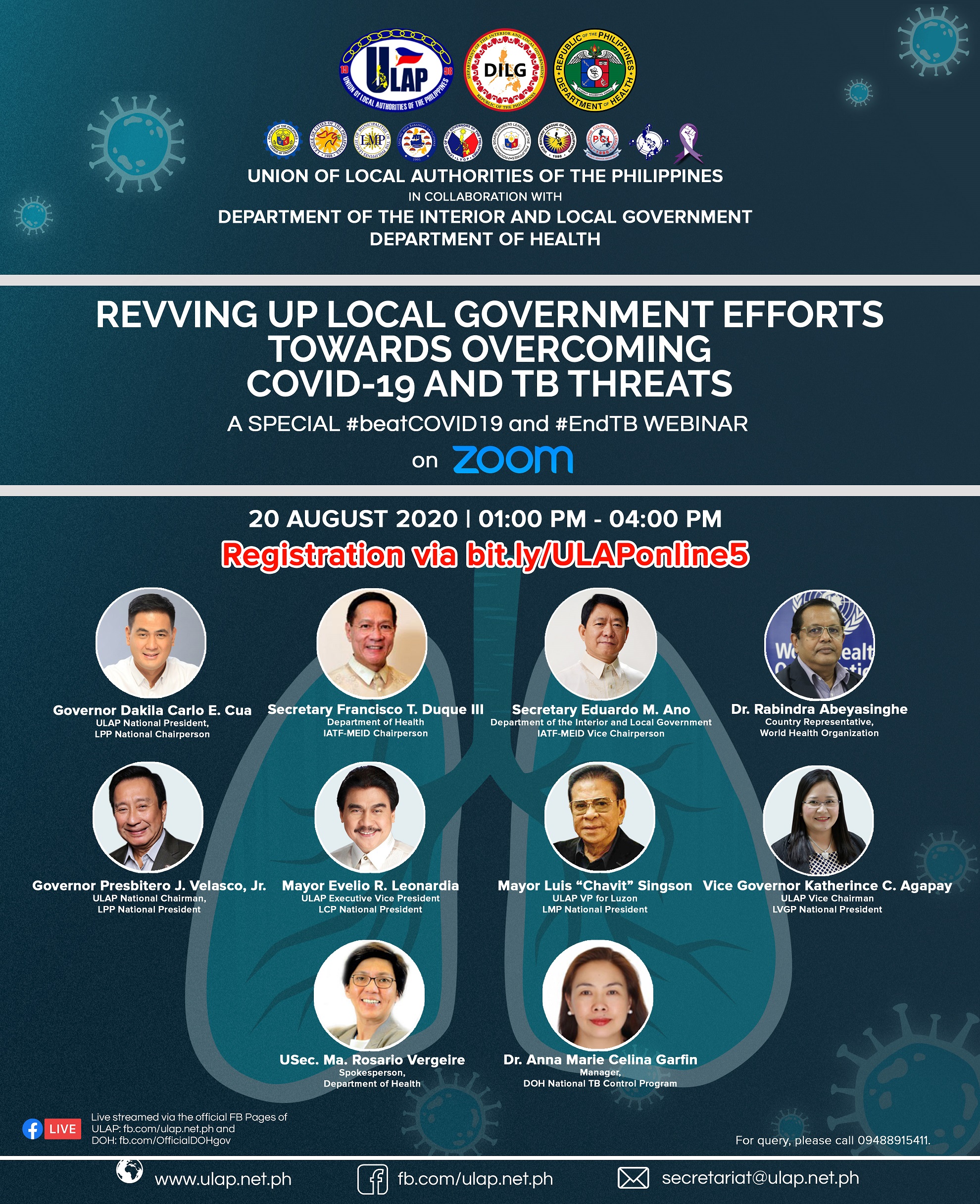
Catch the Union of Local Authorities of the Philippines' (ULAP) Special #beatCOVID19 and #EndTB Webinar with the theme:"Revving Up Local Government Efforts towards Overcoming COVID-19 & TB Threats" on 20 AUGUST 2020, THURSDAY, 01:00 PM TO 04:00 PM via ZOOM Platform. This activity is brought to you by ULAP, in partnership with DOH and DILG.
Guests and resource speakers include IATF-MEID Chairperson/DOH Secretary Francisco Duque III, DILG Secretary Eduardo Año and World Health Organization (WHO) Country Representative Dr. Rabindra Abeyasinghe.
All interested LCEs, local elected officials, PHO/CHO/MHO, LESUs, and other local government personnel who must be informed of the DOH New Omnibus Guidelines in Covid Testing and TB policy guidance and initiatives, are cordially invited.
#LGUvsCovid
Dialogue on the Management of Locally Stranded Individuals (LSIs) and the Opening of Higher Education Classes
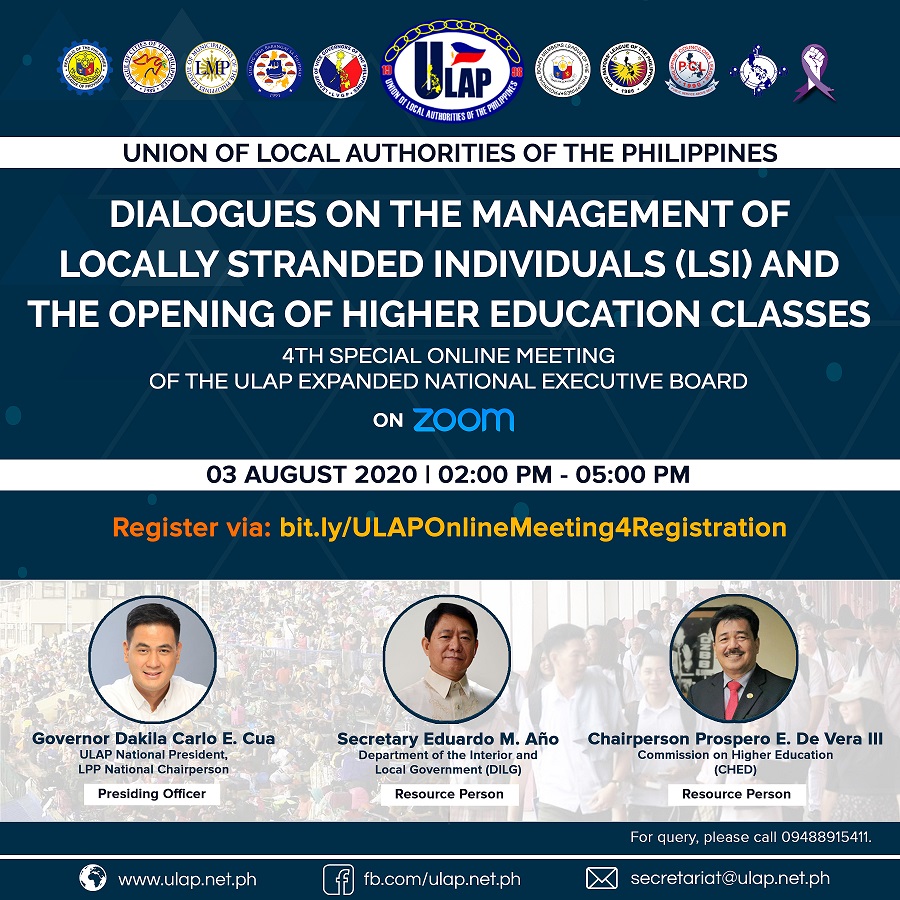

4th ULAP Special Online Expanded Meeting
The Union of Local Authorities of the Philippines (ULAP) conducted its 4th Special Expanded National Executive Board Meeting on the Management of Locally Stranded Individuals (LSIs) and the Opening of Higher Education Classes held on 03 August 2020.
Cognizant of the varying socioeconomic contexts of local government units (LGUs), as well as the sensitive nature of inter-zonal movements amid the unabated spread of the virus, ULAP has invited DILG Secretary Eduardo Año to explore a unified set of parameters that will not only facilitate the processing of LSIs transit from point of origin to point of destination, but also ensure the safety of all parties involved, particularly the receiving community.
On other hand, CHED Chairperson Prospero De Vera discuss the continuity of higher education, especially the opening of classes including the possible scenario in the conduct of limited face-to-face classes in low risk MGCQ areas.
#LGUvsCovid

